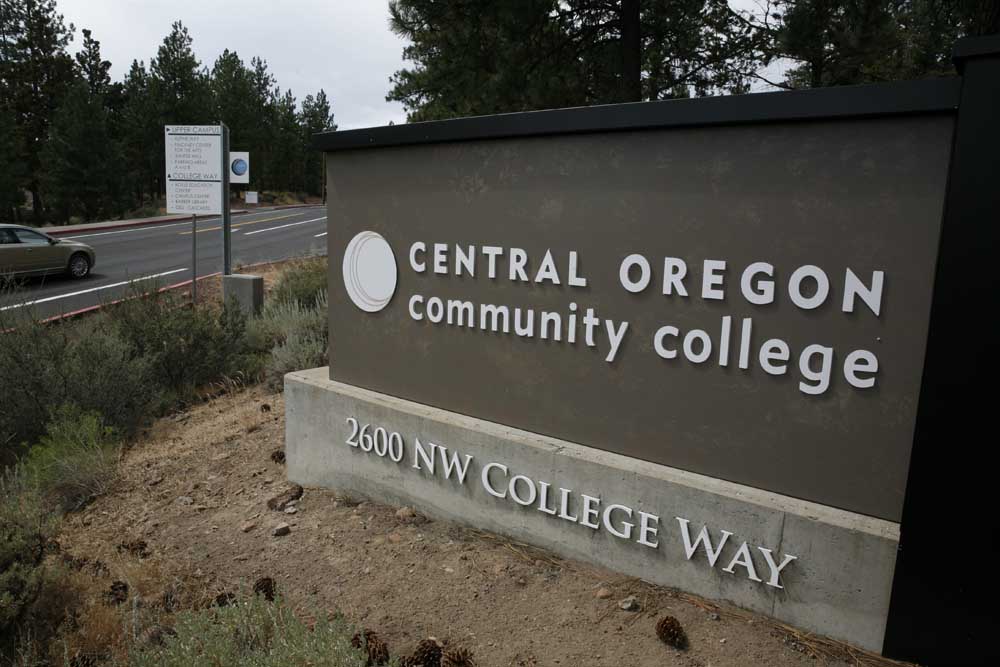North Lake County makes case for leaving COCC district
Published 12:00 am Wednesday, August 29, 2018

- Central Oregon Community College
Citizens from sparsely-populated north Lake County want out of Central Oregon Community College’s taxing district, saying the community college neglects them and the value of the services they receive does not match the property taxes paid to the school.
“I think the attitude in the community is (for) the amount of taxes contributed every year, the return to our community is nowhere near what we invest,” said North Lake School District Superintendent David Kerr, who supports a petition to the state’s Higher Education Coordinating Commission that would allow north Lake County to leave COCC’s district.
Trending
However, the COCC board officially asked the higher education commission Monday to ignore the petition, stating that removing the area from the school’s district would put north Lake County’s students at a disadvantage. According to COCC spokesman Ron Paradis, in-district students pay $99 per credit hour, versus out-of-district students, who pay $138 per credit hour.
Out-of-district students also cannot receive Honors or Merit scholarships, which go to graduates of each in-district high school. In the last five years, at least five North Lake High School graduates received a $1,500 a year Honors or Merit scholarship, and four earned Foundation Scholarships, worth up to $4,000 per year, Paradis wrote in a statement.
At a public hearing Monday night at North Lake School, COCC board Chairman John Mundy read a statement asking higher education commission representatives to keep north Lake County in COCC’s district and ignore the community petition.
“We further believe approving this petition sends an unintended message to other parts of Oregon that the state supports withdrawing from a community college district,” Mundy’s statement reads.
“Though the petition in this instance applies to the COCC district, its impact washes over onto all Oregon community colleges.”
At that same hearing, north Lake County residents made their case for leaving COCC’s district. The group, led by Silver Lake ranch owner Alan Parks, said Klamath Community College had more connection to the community, as the college offers a tech class for high school or college credit at North Lake High School. COCC currently has no active programs in Lake County.
Trending
“When Klamath (Community College) wants to do things for Lake County, we’re always a sticking point,” Kerr said. “Bottom line, we feel that … being more associated with Klamath Community College is in our best interests than being a part of the COCC tax base.”
However, Parks told The Bulletin Tuesday he doesn’t think north Lake County wants to be in the Klamath Community College district either.
“As a small-population outlying area, the relationship (with KCC) is excellent at the moment,” he said. “But if the leaders or leadership of KCC should change, then we might be feeling as neglected as we do now.”
According to Parks, about 12 people who weren’t associated with the Higher Education Coordinating Commission or COCC were at the north Lake County hearing.
Currently, the rest of Lake County is not in any community college’s district. According to Google Maps, Silver Lake is approximately 82 miles from COCC’s Bend campus and 104 miles from Klamath Community College’s campus east of Klamath Falls.
According to Lake County Assessor Dave Knowles, the maximum amount of property taxes that COCC could raise for the 2017-18 tax year was about $127,000. If north Lake County successfully leaves COCC’s district, Paradis admitted that the loss “wouldn’t impact us that much,” as the state would make up for the loss. Also, $127,000 is a small percentage of the $17.1 million in property tax revenue that COCC expects to earn in the 2018-19 school year, according to school data.
Raylee Hand, a COCC student entering her second year who grew up in Silver Lake, said the split between graduating seniors who go to COCC and Klamath Community College is about 50-50. She chose to move to Bend because of the in-district discount and a scholarship she received, and said that her region’s push to become independent from the college is “really sad.”
“As a 20-year-old going into college, I wouldn’t be able to pay for college myself and not depend on my parents,” she said.
Hand said if she wouldn’t have gotten the COCC discount, she would’ve paid full price somewhere else in the state rather than go to Klamath Falls, which she said “looks trashy.”
Kyle Thomas, the director of legislative and policy affairs for the higher education commission, said the next step for the agency is to gather more information from north Lake County residents, COCC and Klamath Community College, and then make a recommendation for the agency’s commissioners. Thomas said the goal was to have the recommendation ready by mid-October.
If the Higher Education Coordinating Commission approves, then the state Legislature will make the final decision. According to Thomas, the commission — which has existed for four years — has never dealt with a situation like this, although he was aware that COCC and north Lake County have “been having a version of this discussion over the past few decades.”
—Reporter: 541-617-7854,jhogan@bendbulletin.com








